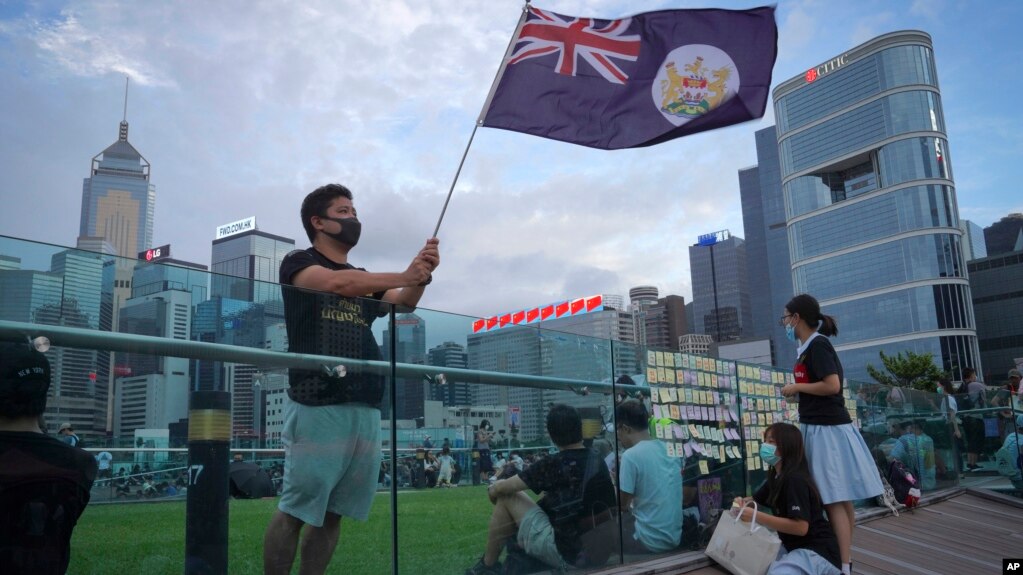Hong Kong: 25 Years after the Handover

July 1 marks 25 years since Britain handed over control of Hong Kong to China.
When it did so, the city was promised 50 years of self-government. The city was told it could keep the freedoms of speech, assembly and press that were not permitted on the Communist-ruled Chinese mainland.
But those promises have grown weaker. The future of the city of 7.4 million people remains unclear, driven by forces beyond its control.
Before the change of power, many in Hong Kong worried that life would change when China took over. Thousands looked for residency elsewhere and some moved to other countries. But for about the first 10 years, the city appeared to keep its freedoms, and the economy was strong.
In recent years, however, Beijing has been expanding its power and control. Those moves appeared to quicken after mass pro-democracy protests in 2014 and 2019. Now, schools must provide lessons on patriotism and national security. Some new textbooks deny Hong Kong was ever a British colony.
Changes to election rules have led to a lack of opposition lawmakers in the city's legislature. Lawmakers must be considered “patriots" by China. China has named John Lee, a longtime security official, the next chief executive.
Freedom of the press also has come under attack. Pro-democracy newspapers that were critical of the government, like Apple Daily, have been forced to close. Its publisher Jimmy Lai has been jailed. The city's tourism and businesses are struggling from China’s zero-COVID policy.
Alex Siu was born in Hong Kong and left in 2020. His parents had made sure that he would have the choice to leave if he wanted to. They got him a British National overseas passport years earlier.
Siu moved to Britain with his girlfriend because of anger with Hong Kong’s work environment and the political situation. He misses the food, friends and family, but is not planning to go back.
“I believe there is no hope because the government holds absolute power,” Siu said.
Kurt Tong is the former U.S. consul general to Hong Kong. He is currently with The Asia Group, an advisory firm. He said the reforms represent the growing dissatisfaction of the government in Beijing with Hong Kong.
“The things that China found irritating about Hong Kong started to become more prominent, and the things that it found attractive about Hong Kong started to be less prominent, and friction built up over time,” he said.
Beginning in 2020, officials started passing measures limiting political dissent. Officials started arresting many activists and imprisoning them for illegal assembly. The arrests continued although the city’s constitution, called the Basic Law, guarantees freedom for such gatherings.
John Burns is a professor of politics and public administration at the University of Hong Kong. He was doubtful that China would ever give Hong Kong full democracy or universal voting rights. These were goals in the Basic Law at the time of the 1997 handover.
“We’re in a kind of hellish place. Hong Kong is not part of the system and therefore it can’t bargain that way, (but at the same time) we are not free. We are in this hybrid middle ground," Burns said.
Chan Po-ying is a 66-year-old pro-democracy activist. Her partner, also an activist, is serving a nearly two-year prison sentence on national-security related charges. But Chan said she is not giving up the fight for democracy.
In May, during an election for Hong Kong’s new chief executive, Chan and several others held a small protest to demand full voting rights. And on June 4 this year, Chan with two others stood on a street in silent protest. June 4 is the anniversary of the 1989 Tiananmen Square attack on pro-democracy protesters in Beijing. Hong Kong has banned yearly protests marking the deadly attack.
Chan hoped to protest Friday’s ceremonies marking the 25th anniversary of the British handover to Chinese rule.
But she and fellow activists were forced to talk with state security police. Afterwards they decided “on that day, we cannot conduct any sort of protest activity," Chan said.
Words in This Story
assembly— n. a group of people who have gathered together
residency — n. legal permission to live in a place
tourism — n. the industry of providing goods and services for visitors to a place
consul — n. a diplomatic official whose job it is to live in a foreign country and provide services and protection for citizens of his or her own country
irritating— adj. making someone angry, upset or impatient
prominent — adj. important or well-known
friction — n. disagreement or tension
hellish — adj. very bad, unpleasant or shocking
bargain — n. an agreement in which people or groups say they will do or give something in exchange for something else
hybrid — adj. something that is formed by combining two or more things
Hong Kong: 25 Years after the Handover (voanews.com)